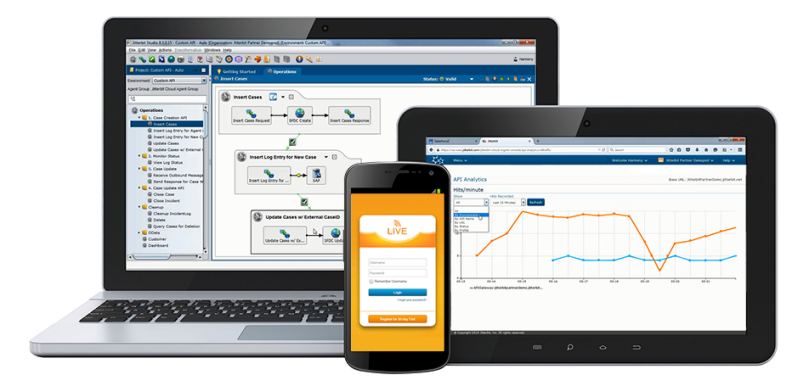 NEWS
NEWS
 NEWS
NEWS
 NEWS
NEWS
In another sign of the growing popularity of the so-called API economy, enterprise integration vendor Jitterbit Inc. raised $20 million in a Series B funding round led by the global investment firm KKR & Co. L.P. The cash injection comes on top of an earlier $5 million round raised two years ago from partners that include Salesforce Inc., Autodesk Inc. and Primera Capital LLC.
The new cash infusion will provide the company with some needed breathing room to crank up sales, marketing, engineering and professional services. “We’ve been strapped. We’ve been running the business off our balance sheet,” said George Gallegos. He said Jitterbit currently employees around 100 people and expects to double that over the next 12 to 18 months.
Jitterbit is an 11-year-old integration company that has long provided translation of formats like XML, ODBC and JDBC between different sources, but its star has been rising since application program interfaces (API) took off as a favored way for companies to exchange data without losing control of it. ProgrammableWeb.com lists more than 14,000 public APIs, up from just a handful 10 years ago. Forrester Research predicts that companies will spend nearly $3 billion on API management over the next five years.
The company’s two-year-old Harmony platform gives developers the ability to quickly connect and manage application endpoints, and to tie them together with legacy technologies. Its designer dashboard enables business users to create and expose APIs using a point-and-click interface without writing code. It comes with pre-built connectors for popular applications and users can roll their own with a toolkit.
The company has received a particularly enthusiastic reception from health care providers and companies in the project lifecycle management (PLM) business, both of which are struggling with the need to connect many data sources, Gallegos said. In concert with its funding announcement, Jitterbit launched Healthcare Interoperability Platform, a set of tools that enable medical device manufacturers, health care providers, application developers and electronic medical record vendors to streamline the process of integrating data from multiple sources. Autodesk embeds and resells the technology in its PLM products and Salesforce uses it as connector between members of its growing universe of third-party applications.
APIs have acquired special momentum with the arrival of mobile devices, which are limited in bandwidth capacity as well as the amount of data they can store locally. Using APIs, smartphones and tablets can grab just the data they need off the server without storing it locally.
Real-time capabilities are opening new use scenarios. For example, Canadian Automobile Association uses Jitterbit Harmoney to quickly check multiple registration systems to be sure motorists calling into its Salesforce.com-based call center have an active roadside assistance subscription, and then connects agents with nearby service providers for help.
Jitterbit intends to increase the number of customer case studies like that one on its site by channeling investments into marketing. Currently, “100% of our business is inbound and a lot of it comes through cloud ecosystems, with Salesforce being the biggest force out there,” Gallegos said. He said the Harmony platform has about 30,000 users of its freemium edition and nearly 1,000 paying customers. In 2015 the company added more than 200 new customers and a jump of 80 percent in recurring revenues.
Support our mission to keep content open and free by engaging with theCUBE community. Join theCUBE’s Alumni Trust Network, where technology leaders connect, share intelligence and create opportunities.
Founded by tech visionaries John Furrier and Dave Vellante, SiliconANGLE Media has built a dynamic ecosystem of industry-leading digital media brands that reach 15+ million elite tech professionals. Our new proprietary theCUBE AI Video Cloud is breaking ground in audience interaction, leveraging theCUBEai.com neural network to help technology companies make data-driven decisions and stay at the forefront of industry conversations.